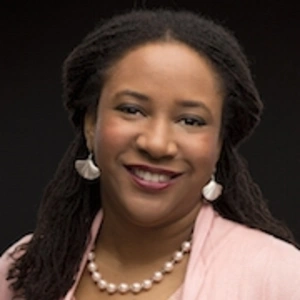Biography
Ebony Elizabeth Thomas studies how people of color are portrayed, or not portrayed, in children’s and young adult literature, and how those portrayals shape our culture. She regularly reviews children’s books featuring diverse heroes and heroines, teens and tweens caught between cultures, and kids from the margins for the Los Angeles Times. She has a particular interest in young adult fantasy literature and fan culture. A former English and language arts teacher, Thomas also explores how teachers handle traumatic historical events, such as slavery, when teaching literature.
Born and raised in Detroit, Michigan, Dr. Ebony Elizabeth Thomas taught elementary language arts, high school English, and creative writing in public schools for several years after graduating from Florida A&M, a historically Black university in Tallahassee, Florida. She noticed that her urban students were critical evaluators of both course texts and pleasure reads, rationalizing why they preferred to read certain genres over others. When Dr. Thomas moved to a wealthier, rapidly integrating district, she observed the ways her teacher talk negotiated either cross-cultural solidarity, empathy, and community around literature or led to conflict, misunderstanding, and student disengagement. After graduating from the University of Michigan in 2010, she returned to the regional urban research university where she earned her master's degree and spoke at conferences about how she used functional language strategies to assist her diverse, first generation students in developing powerful literacy pedagogies useful for working with some of the nation's most academically underserved students.
From her experiences in the classroom, teacher research, and dissertation study, Dr. Thomas came to believe that the language students and teachers use, the literacies that they engage in both inside and outside of school settings, and the literature and other texts they read and interact with must be reconsidered during this early 21st century era of social change and societal redefinition. In her work, Dr. Thomas synthesizes postcolonial, critical, and critical race theory with data from her empirical research in classrooms to examine the ways that literature is positioned in schooling and society today. As children’s and young adult literary empires continue to dominate publishing and Hollywood, she strongly believes that the field has the potential to become one of the most effective postcolonial, critical, and activist projects of all.
Dr. Thomas’s program of research is most keenly focused on children’s and adolescent texts (broadly construed), the teaching of African American literature, history, and culture in K-12 classrooms, and the roles that race, class, and gender play in classroom discourse and interaction.
